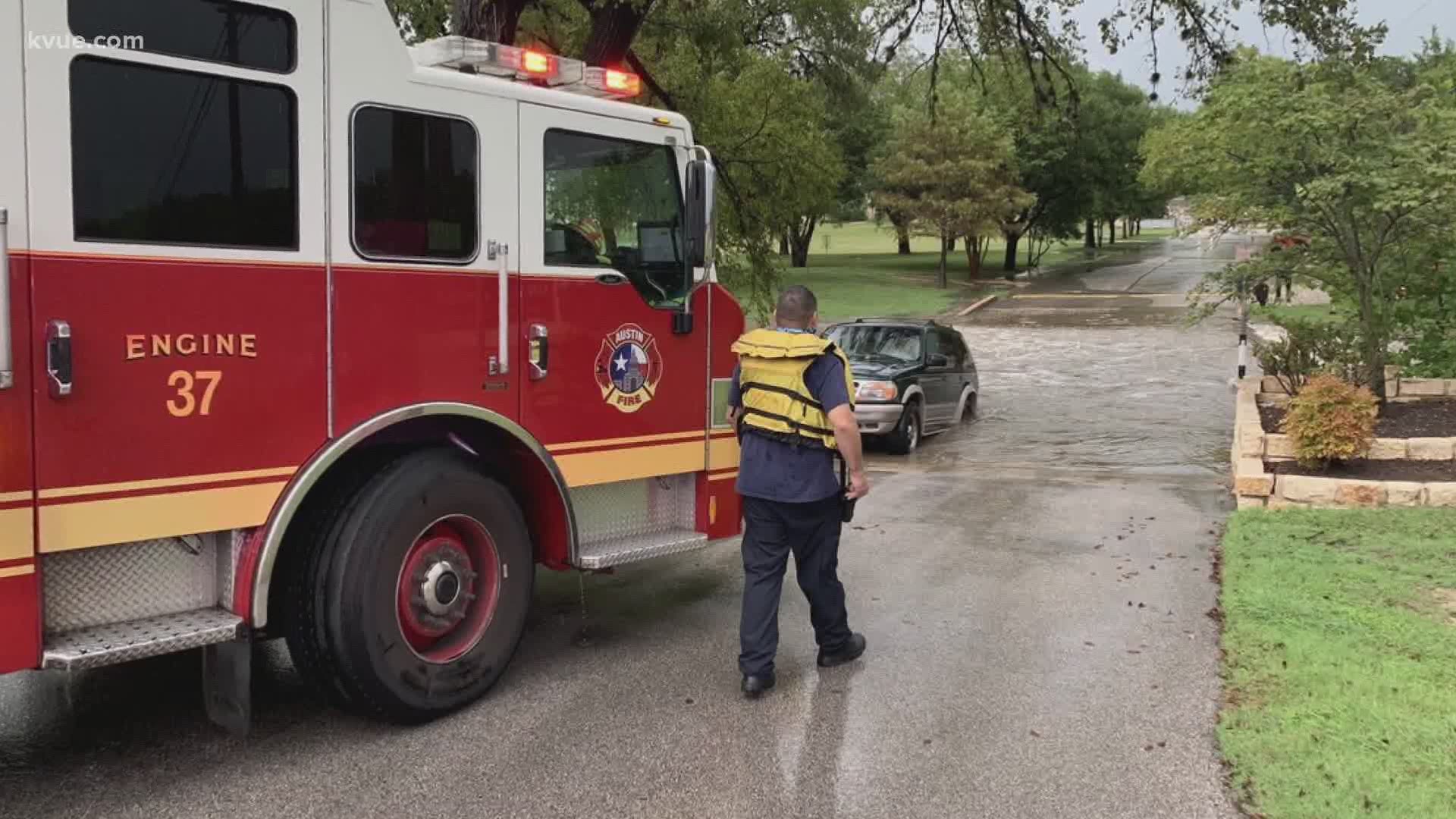AUSTIN, Texas — The Austin Fire Department has assisted in at least one vehicle rescue at a low water crossing in southwest Austin on Wednesday as heavy rain moves across the region.
Emergency services are reminding drivers to “turn around, don’t drown” after a bystander was nearly swept away trying to assist a motorist stranded in water.
AFD said the person was safely rescued with no injuries.
High rainfall has caused flooding, as heavy rain continues over an already saturated area. Visibility for motorists has also been low as rain comes down.
A Flash Flood Warning was in place for Travis, Hays, Burnet and Williamson counties until 5:30 p.m. on Wednesday. A Flood Advisory replaced the Flash Flood Warning in Travis County. Hays County is under a Flood Advisory until 12:15 a.m.
A Flash Flood Warning was issued for western Caldwell County until 1:30 a.m.
Low-water crossings are closed at more than a dozen locations in the Austin area and the Hill Country, including at Old Bee Caves Road, according to ATXfloods.com.
Drivers had been asked to avoid the area as water covered the road on San Jacinto and 21st Street. Waller Creek was rising, UT Austin Police said. The road has since reopened.
Downed trees have also caused issues for motorists, with one blocking the 100 block of CR 270, according to the Williamson County Sheriff’s Office.
KVUE viewer Faith Ward sent a video showing rocks in the lanes on 360 Capital of Texas Highway at Courtyard Drive southbound. Rocks on that stretch of the highway can fall from heavy rain hitting the porous limestone, creating a potentially dangerous situation.
The Leander Police Department said it is seeing water pooling along several streets and is reminding drivers to stay safe on the roads.
Showers and thunderstorms are expected to continue through the evening and into Thursday as a cold front makes its way into the Austin area.
The most widespread coverage of rain is expected toward the Hill Country, with 2 to 3 inches or more possible. Rainfall totals are expected to taper significantly as you move farther east, with 1 to 2 inches more likely closer to the Interstate 35 corridor, and lower totals to the east.
PEOPLE ARE ALSO READING:

